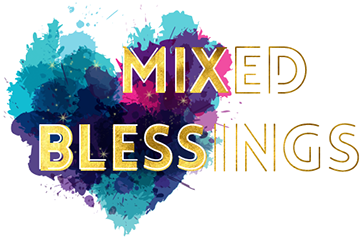*Trigger warning* This post mentions suicide.

Yesterday, we were informed that a child at the high school passed away.
Suicide.
A couple of weeks ago, a friend shared that one of her students died.
Suicide.
Our children, like us, have a lot going on. They have good days and bad days. Why do so many people think kids should be happy all the time? They’re human beings, with the same emotions as adults. If we, as grown folks, struggle with OUR emotions, what makes you think our children are equipped to handle theirs?!
It blows my mind when I hear an adult say: “What do kids have to be depressed about? They CAN’T be depressed!” That statement is often times followed by laughter, and disbelief.
Would you say that if a child had cancer, or epilepsy? I doubt it. Why then, do you say it about a child with anxiety, ADHD or depression? WHY?
Think back to your childhood, especially your teen years. Are you gonna tell me you were never depressed growing up?! You never had your heart broken? You were happy every single day of your childhood?! I know I wasn’t.
Mental health issues in children and teens are REAL, whether you choose to believe it or not. Children are struggling, and many adults are oblivious to it. Kids are screaming out for help, some of those screams are silent. It’s our duty, as good humans, to hear their cries and step up.
We need to normalize seeking help for mental health concerns. Period. So many children (and adults) suffer in silence. The stigma surrounding mental health care keeps them from reaching out. And for some, the burden they carry becomes too heavy, and we lose them, forever.
The next time you see a child having a “tantrum” in a store, have a little empathy. Try to be more understanding. It could very well be a “meltdown” instead, possibly brought on by sensory overload, or something else. And no, a “good spanking” isn’t what is needed.
Instead of looking at the child and thinking “that’s a really bad kid,” change your thought processes to “that kid is having a really bad time coping with life right now.”
When someone shares with you that their teen is depressed or has anxiety/panic attacks, listen to them. Acknowledge what they’re going through, don’t just dismiss it. Put yourself in that parent’s shoes. Or even better, pretend you’re that teen, trying to navigate in a society that believes kids should always be “happy.” Imagine sharing your innermost feelings with someone, only to have them laugh in your face, not believing any of it.
YES, children and teens can (and do) have mental health issues, just like adults. Are you going to continue to be part of the problem, or are you ready to GROW UP and be there for them?
National Suicide Prevention Lifeline: 1-800-273-8255
*photo taken by me*







